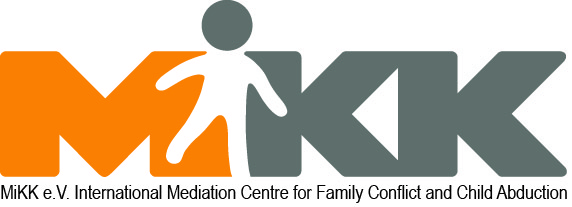Mediation process
The duration of a particular mediation varies. Especially in highly escalated cases, in cases involving great fear and anxiety (e.g. the fear of losing touch with one’s child) and in cases where the parents do not trust each other, several mediation sessions are required.
If the parents live in the same city, between 3 and 8 mediation sessions will be required depending on the problems and issues to be resolved. If the parents live in different cities or countries, or even on different continents, mediation will be concentrated in a few days, e.g. Friday to Sunday. Sometimes it may be continued at a later time.
Mediation is characterized by the following five sequential phases:
- Introducing mediation by making contact, working out the basic rules and the framework of mediation, and the initial agreement
- Naming and agreeing upon topics and questions that should be addressed in the mediation
- Dealing with conflicts by throwing light on the background and feelings, formulating needs, negotiating along the parties’ interests and by creative thinking
- Developing possible solutions, negotiation and agreement over criteria for decisions
- Concluding mediation by making a (binding) contract and by self-reflective reviewing
In international conflicts involving parents and children, mediators work in a team together. Bi-professionalism is an essential feature of the practical work as family mediator. The mediation training is already characterized by the equal participation of mediators coming from legal, psycho-social and educational professions. Mediators from different professions also cooperate in the practical work, particularly with regard to international conflicts involving parents and children. This ensures the adequate consideration of both the psycho-social and the legal elements which are typical of every conflict involving parents and children. Also, a male and a female mediator usually cooperate in order to provide both parents with a counterpart of his/her own sex.
The mediators assist the parties in communicating with each other in a spirit of frankness and mutual respect so that they can independently work out lasting solutions for the future.
A central tool in mediation is a dialogue that opens and encourages discussion. In dealing with the parents, the mediator strives for an attitude of respect, non-bias, interest in and appreciation of each other’s life styles and cultural background. A mediator aims as well for impartiality, and for acceptance and appreciation of different perspectives and interests of the conflicted parties. The mediators do not make decisions about which solutions to accept, instead, they support and trust in the abilities of their clients to develop and implement a solution for themselves.
Advice
CONTACT US FOR ADVICE ON YOUR SITUATION
FAQs
GET ANSWERS TO YOUR QUESTIONS
Flyer
FLYER IN MULTIPLE LANGUAGES

